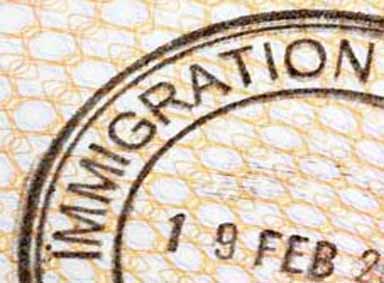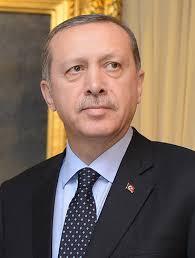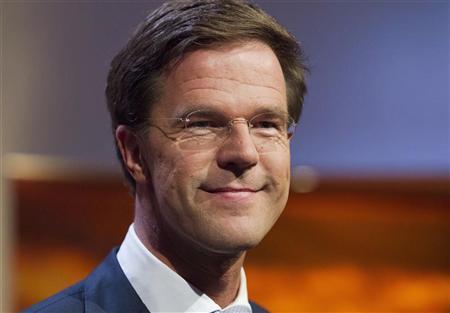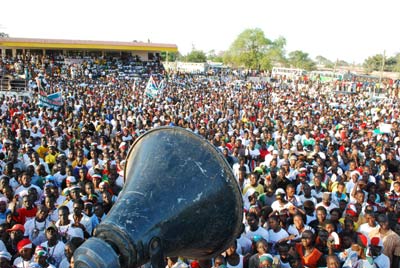
The Cambridge Election Podcast
From the University of Cambridge comes ELECTION, an insightful politics podcast; asking the questions that no one else is in the run-up to the British General Election with the most interesting people inside and outside the political arena. Here below are the latest podcasts.
#9 – Simon Szreter on conspiracy theories, trust in politics & solutions
It is said that trust in politics is at an all-time low. Our politicians are seen as out of touch and out to fill their own pockets. But when does mistrust become something more profound? This week we discuss this phenomenon in its most extreme form: conspiracy theories. What conspiracy theories do the British public believe? How commonplace are they, and how have they spread? Are people really so wrong to believe that the world is run by a secret elite? We interview a team of Cambridge researchers for answers. Then David turns to Professor Simon Szreter – social historian and founder of ‘History & Policy’ – to discuss how academics are trying to find ways of restoring the public’s faith in politics, and bridge the gap between the politicians’ narrow view of the world and how the voters see it. The team also discuss the television debates, politicians’ use (and abuse) of facts and figures, Tony Blair, and UKIP’s strategy for electoral success.

Borders and Barriers: Migration and Economic Exclusion
The search for a better life (sometimes couched in terms of freedom of religion) prompted migration from Europe to the new world in the seventeenth and eighteenth centuries. The ancestors of many North Americans, Australasians and white Africans or South Americans were hailed as pioneers, pilgrims and founding fathers despite the devastating consequences of their arrival on indigenous people. The settlers brought others too: Slaves from Africa or the East Indies, indentured labour from India and voluntary migrants came from the near and far East seeking greener pastures. Global mixing began centuries ago and the world has struggled with multi-culturalism and immigration since. The pursuit of ethnically pure societies is a mirage. The developed countries have multi-generational ethnic minorities from former colonies and everywhere else. Latin America and Africa are dotted with diaspora from the West and the East as well as mestizo groups. Migration continues unabated by borders and exploded on our television screens recently because of two catastrophic events: The sinking of a dingy in the Mediterranean which killed over 900 migrants and a second wave of xenophobic violence in South Africa which resulted in murder, looting and the expulsion of “foreigners” from their homes. Ironically, these events are the consequence of European state centred policy to cut back on rescue missions and anarchic but contagious violence in South Africa, where the state appears complicit by its impotence (until very recently when the army was deployed to protect foreigners).
Poor African migrants have two choices: Head north to Europe or south to South Africa, the largest economy on the continent. Both the governments of Europe and the poor citizens of South Africa cynically believe that danger will deter immigration. People will think twice about crossing the Mediterranean if the risks of drowning or deportation are great enough. Similarly, Mozambicans and Zimbabweans will leave South Africa and others will stop coming if the probability of being killed or dispossessed is greater. “They” need to get the message that “we” don’t want them, we have too many pressures coping with our own problems. Right wing parties in Europe and King Goodwill Zwelethini in South Africa have stoked the flames of intolerance and fear, turning public opinion against migrants so fiercely that the bounds of morality and humanity are being tested. Yet Italy and Greece are overwhelmed and the migrants who have fled South Africa will return when the situation calms down and more will still come. Danger does not deter when desperation is sufficient or when the danger of staying surpasses the danger of leaving. The people who risk everything to come to Europe or South Africa are driven by more than greener pastures; they feel that their survival depends on escape. Some are asylum seekers fleeing from conflict or ethnic cleansing but others are as desperate for work and a future.

Trading Water: Could Markets Be One Solution to California’s Water Woes?
Drought-stricken California is taking unprecedented measures to address its water challenges.
In April, the governor issued the first mandatory statewide water use restrictions in California history, after snowpack in the Sierra Nevada Mountains—which provide 60 percent of the state’s water—fell to the lowest levels ever recorded. San Diego County is building the largest seawater desalination plant in the Western hemisphere, while Orange County plans to turn more wastewater into drinking water.
The solutions are significant because the drought has been exceptionally severe. It currently affects over 99 percent of the state and approximately 37 million people. In 2014, the state agriculture industry lost roughly $2.2 billion to drought, and some California communities even ran out of water.
One solution California may consider is whether more efficient, user-friendly water markets would help water users adapt more quickly to drought conditions, and better cope with long-term water scarcity stemming from climate change and increased water demand.
California has active water markets, but buying and selling water (and water rights) there is not as simple as in Australia, where it is said to be “almost as easy to sell water from your water bank account as it is to transfer money from a normal bank account.” The Australian model could be useful for California because Australia recently emerged from a decade-long drought, during which it pioneered water policies that attracted interest from water-scarce countries around the world.
Why is water trading easier in Australia? One reason is that Australia’s water rights system has been made relatively simple and predictable. It is designed so that rights holders can generally expect to receive a certain percentage of their water every year, based on the type of water right they hold. This makes water rights’ value easier to determine; the water rights transfer process is also less onerous.

The Cambridge Election Podcast
From the University of Cambridge comes ELECTION, a weekly politics podcast; asking the questions that no one else is in the run-up to the British General Election with the most interesting people inside and outside the political arena. Here below are the eighth, ninth and tenth podcasts.
#8 – Robert Tombs on Britishness, Britain’s place in Europe & the NHS
What makes our politics uniquely ‘British’? Why is there no EnglishIndependence Party? How did the NHS become a sacred cow? And will Britannia ever rule the waves again? David puts these questions to Professor Robert Tombs – historian and author of a new epic history of England – to discover the impact of culture and foreign affairs on British political life. The team also review David Cameronand Ed Miliband’s favourite books, the pros and cons of the fixed-term Parliament, the neglected but extraordinary Nigerian election, and what to expect between now and polling day.

The perils of Turkish presidentialism
With Recep Tayyip Erdoğan sworn in as Turkey’s first popularly elected president last August, the debates on adopting a presidential system have once again come to the forefront in the run-up to the Turkish general election in June. The most important implication of the election will be whether it will lead to a formal move toward presidentialism in Turkey’s constitution.
Prior to the election, Turkey’s political system was admittedly complex. In 2007, Abdullah Gül, Erdoğan’s predecessor, was the last to be elected under the former system, in which parliament elected the president. He took office following a strained process between the Justice and Development Party (AKP), the Turkish Armed Forces, and the Republican People’s Party (CHP). The first presidential election in April was boycotted by the CHP. The Chief of the General Staff of the army made statements expressing the wish for a sincerely secular president, and published an e-memorandum warning against emerging disputes regarding the secular nature of the Turkish republic in the context of the election. Eventually, the AKP called an early general election in July, after which the presidential election was re-held in August.
As a further response to the crisis, the AKP held a referendum in October, ensuring the popular election of the president. Thus, Turkey remained a parliamentary system with a ceremonial president until the first popular presidential election was held, and Erdoğan was elected last year. Now, the system has become semi-presidential with both a popularly elected president and a prime minister responsible to the legislature. Crucially, the president does not hold substantial executive powers.

How to run TV debates in a multi-party system
Today, the people of the Netherlands vote for their provincial governments. On face value, the Dutch middle legislative tier has limited powers. However, the results of these elections will also determine the composition of the Eerste Kamer, the Netherlands’ legislative upper house. Elections are also simultaneously held for the Water Board, arguably the most important institution in the Netherlands given its responsibility for water levels, dyke planning and maintenance and other such responsibilities that keep the population’s feet dry. All in all, it’s an important day at the polls.
According to modern conventions, important elections require a TV debate between party leaders, but this is easier said than done in a political system where eleven parties (plus an assortment of regional parties and independents) are represented in the political system. The Dutch have arrived at an innovative solution, running a series of one-on-one mini debates featuring two party leaders at a time.
Last night’s ‘TV debate’ featured nine debates in total, each discussing a different topic, and each lasting a little less than ten minutes. The leaders of the six ‘main’ parties (VVD, PvdA, CDA, D66, SP and PVV) each had two opportunities to debate, while the leaders of the six ‘small’ parties (Green Left, Christian Union, 50+, Party for the Animals, Reformed Political Party and Independents) each had the chance to debate once. Topics debated ranged from energy policy to health insurance.

Inefficient, unaffordable and scarce: Demographic change will worsen the UK housing crisis
In the next 20 years alone, the UK population between 65-84 years will increase by almost 40% and the number of over 85 year olds by more than 100%.[1] It is predicted that the effects of demographic change on the health and welfare system as well as the labour market will be drastic. The rapid ageing of society also has dramatic effects on available affordable housing and only a well-planned policy response can prevent a national housing crisis.
Elderly people occupy almost a third of all homes in the UK. The vast majority of elderly people (over 73%) own the house they[2] live in.[3] The English Housing Survey 2012 has found that almost 50% of homes occupied by their owners have at least two bedrooms that are not considered ‘necessary’.[4] Elderly people often live in homes that are too big and too expensive to maintain. This not only increases their risk of slipping into poverty due to high utility bills, but is also an inefficient distribution of available housing space. Until 2032, the number of over 85 year olds living alone will grow by 244%, which will result in 40% of all households being occupied by only one person.[5] These trends will create shortage of affordable housing necessitating a well-designed and quickly implemented housing policy to tackle this looming crisis.
Alleviation of the housing shortage is complicated by is a lack of retirement and care homes in the UK. With the number of very old and frail people increasing rapidly, the demand for housing options with available carers and nurses will rise dramatically.[6] Local councils are reluctant to approve plans to build retirement homes because of the additional burden this would create on their health and social care facilities. The UK government needs to create incentives for local councils to approve the building of retirement properties [7] as well as support for communities that have a particularly high proportion of elderly citizens. Currently, only 1% of the elderly in the UK live in retirement homes, compared to 17% in the US.[8] According to the London-based think tank Demos, almost 60% of people of the age of 60 and above are interested in moving.[9] Hence, we need to offer more and better housing alternatives for elderly people. This would not only serve the interests of the elderly, but it would free up houses for large numbers of young people currently unable to find or afford a home.

The rise of populism in Southern Africa’s dominant party states
Over the past two decades the countries in southern Africa have generally had ‘dominant party systems’. Such party systems consist of one large ruling party which is dominant, in terms of seats in the national assembly or incumbent advantages, and a number of small opposition parties. The literature on dominant parties (Bogaards, 2004 and Greene, 2007) and competitive authoritarianism (Schedler, 2009 and Levitski and Way, 2010) provide useful insights for understanding the party politics of the region. The dominant party is usually a former liberation movement which fought to end colonialism or white minority rule. Nicholas van de Walle observes that opposition parties in the region lack the financial and organisational ability to compete with the incumbent advantages of ruling parties. As such, they remain small and fragmented. The dominant parties in southern Africa maintain their hold on power through a mix of co-option and coercion and are not unlike their counterparts in other competitive authoritarian states such as Mexico, Argentina and Russia. For example, mass political rallies are held to demonstrate the ruling party’s extensive support base. People are allegedly enticed to rallies with gifts in cash or kind. In addition state media are manipulated to give the ruling party more coverage and draw attention to its achievements and the government attempts to control the media through regulation or intimidation.









